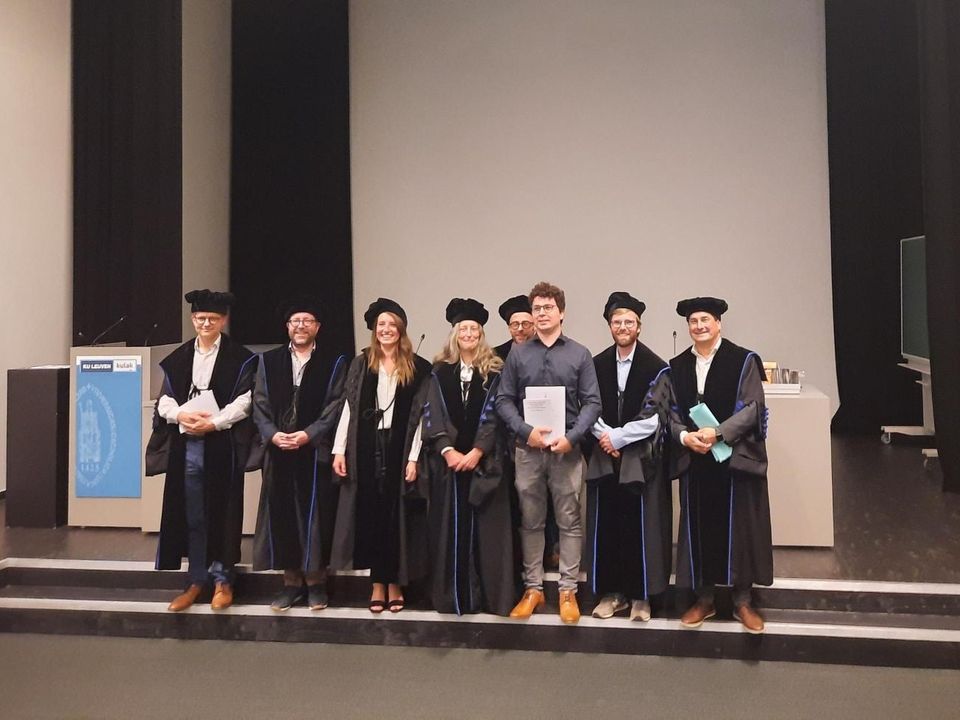Hydrogeology and Hydrogeophysics Research Unit
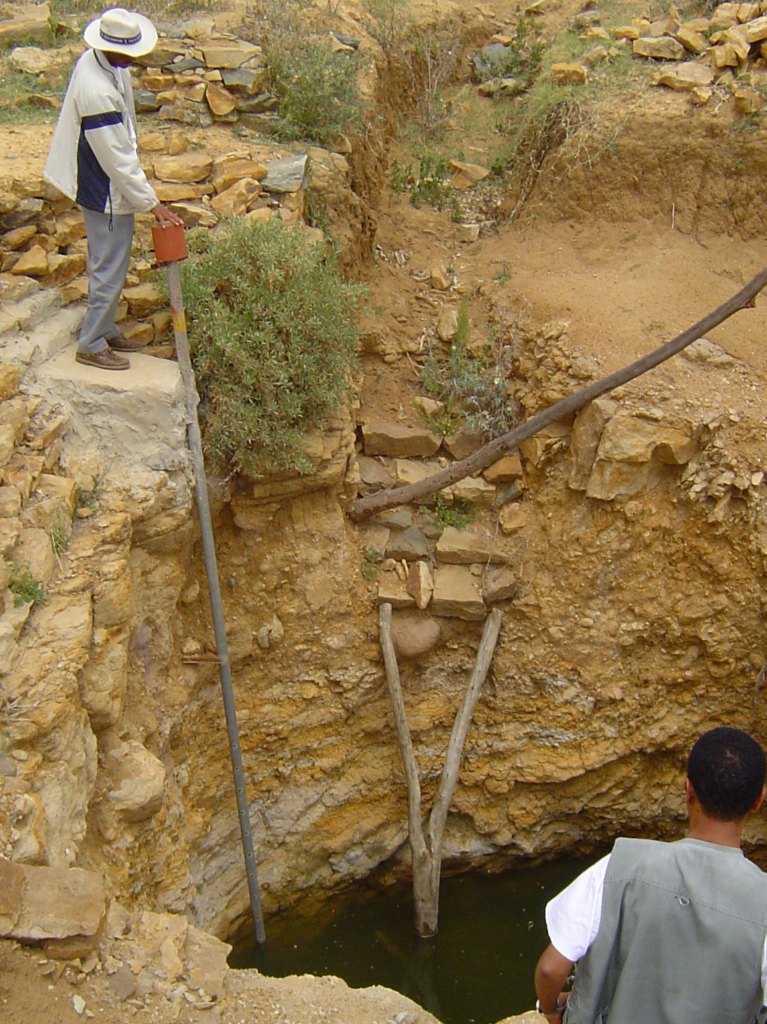
The Laboratory for Applied Geology and Hydrogeology (LTGH) conducts research on hydrogeology, hydrogeochemistry and applied geophysics, with special emphasis on hydrogeophysics. For quantitative aspects, our research focuses on groundwater resources, groundwater exploitation and sustainability, and this in relation to climate and specific groundwater use practices, both in Flanders and in developing countries.
From a qualitative point of view, the basic natural quality of aquifers is studied. Against this natural background, pollution is studied, focusing in particular on diffuse pollution (mostly from nitrates). LTGH has been involved in several European projects related to the natural basic chemistry of groundwater, which have supported the development of the EU Groundwater Directive.
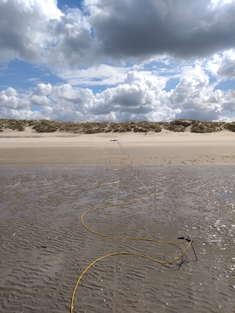
Research on nitrate distribution in groundwater in Flanders has laid the foundation for the Flemish policy on nitrate pollution of groundwater. LTGH has been investigating the relationship between fresh and salt water in the Belgian coastal zone (i.e. saltwater intrusion) since 1960 and is still involved in research on this fascinating phenomenon, also abroad (e.g. Libya, Palestine, Tanzania, Vietnam). Geophysical prospecting is extensively applied for research on saltwater intrusion, as well as in cases of pollution and geological characterization. LTGH is active in the application and development of innovative geophysical imaging techniques with a special emphasis on the geophysical monitoring of natural processes and active experiments (e.g., heat tracing experiments, monitoring of volcanic hydrothermal systems).
In recent years, LTGH has paid increasing attention to Africa, where groundwater exploitation, pollution and the problem of sustainability of groundwater resources are even more directly of vital concern than in the industrialized world. Several doctoral theses and dissertations on African groundwater sustainability problems have recently been completed, with many more in progress.
News and events
09-11-2025 – More awards!
Members of our group have been succesful again in receiving awarads for their research.
This time, both Marwa Ghaib and Khaoula Charrek got an oral presentation award at the 10th Maghrebian Congress of Applied Geophysics (GMGA10), in Hammamet Tunesia.
Both Marwa and Khaoula use an integrated geophysical approach, where they combine Gravimetry, TDEM, and Seismics. Marwa applies this for mapping groundwater aquifer distribution in the structurally complex region of Bou Omrane, whilst Khaoula creates a regional groundwater model for the Kairouan-Sousse regions in Tunesia.
Congratulations Both!
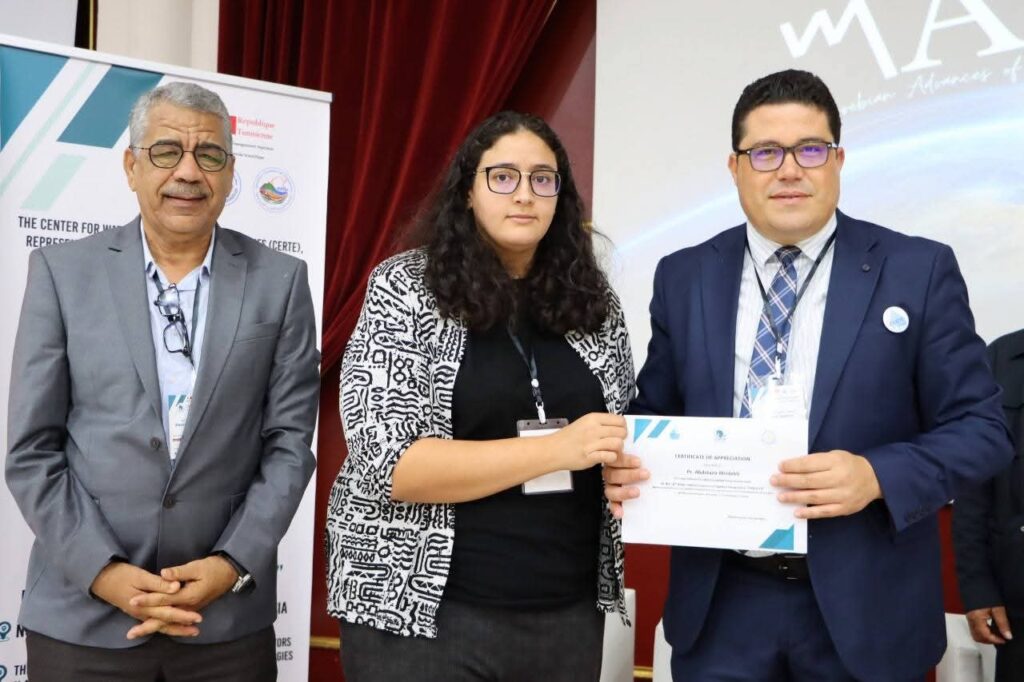

02-06-2025 – SWIM conference in Barcelona
In the beginning of July, Elien and Marieke joined the 2025 Salt Water Intrusion Meeting in Barcelona. Marieke was able to present an overview of her PhD by means of a poster, while Elien presented how cone penetration tests can be used to constrain the inversion of electrical resistivity tomography. Also Linh’s work on the Vietnamese Luy River catchment was presented, in which she assessed the groundwater exploitation of the region under different climate scenarios by means of groundwater modelling.
In the beginning of July, Elien and Marieke joined the 2025 Salt Water Intrusion Meeting in Barcelona. Marieke was able to present an overview of her PhD by means of a poster, while Elien presented how cone penetration tests can be used to constrain the inversion of electrical resistivity tomography. Also Linh’s work on the Vietnamese Luy River catchment was presented, in which she assessed the groundwater exploitation of the region under different climate scenarios by means of groundwater modelling.
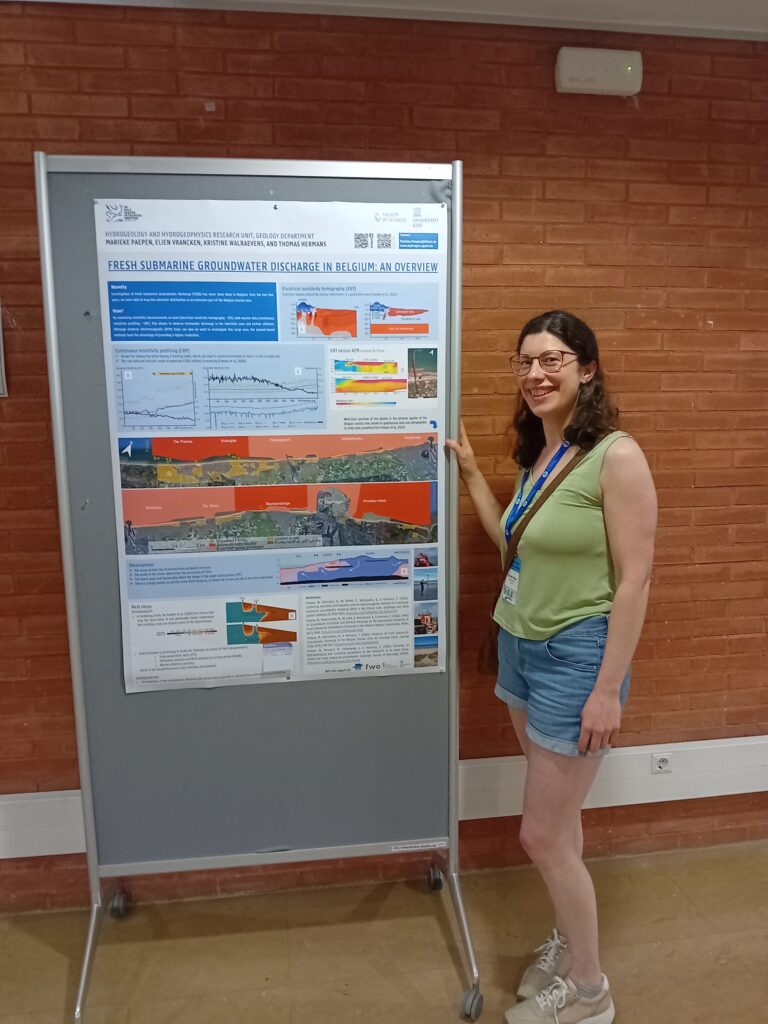
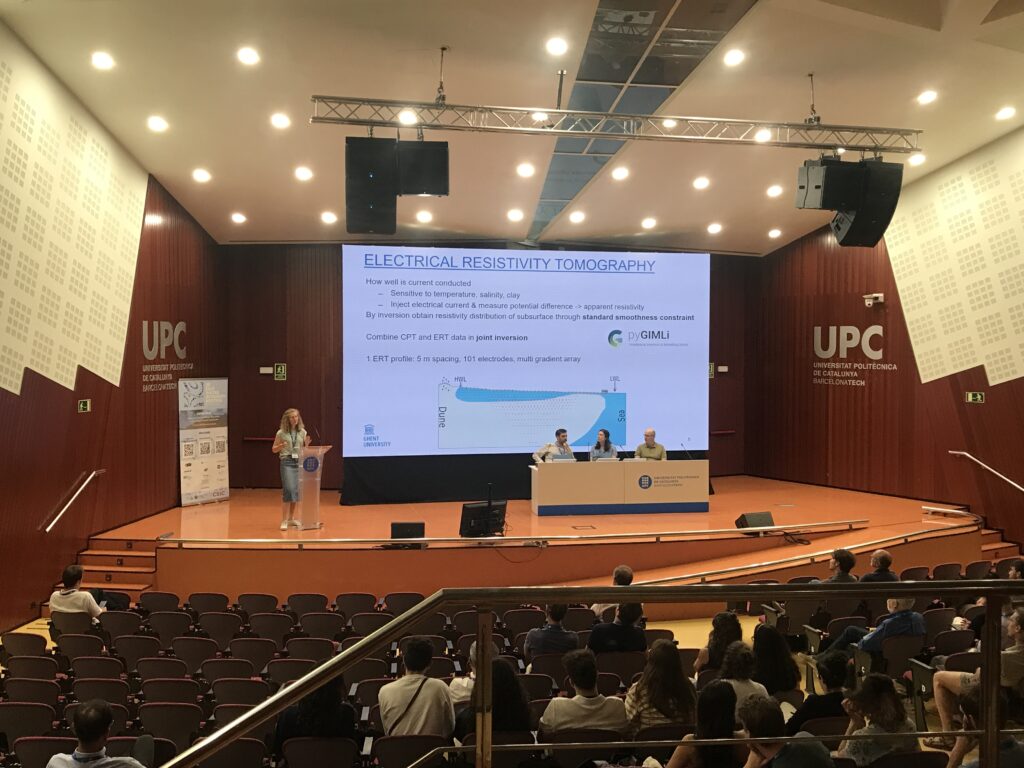
09-06-2025 – Groundwater Quality Conference in Bordeaux
Last week Marwa, Khaoula and Adisu represented our group at the Groundwater Quality conference in Bordeaux. And what a job they did because Marwa Ghaib got awarded the best poster presentation at the conference, congratulations Marwa!
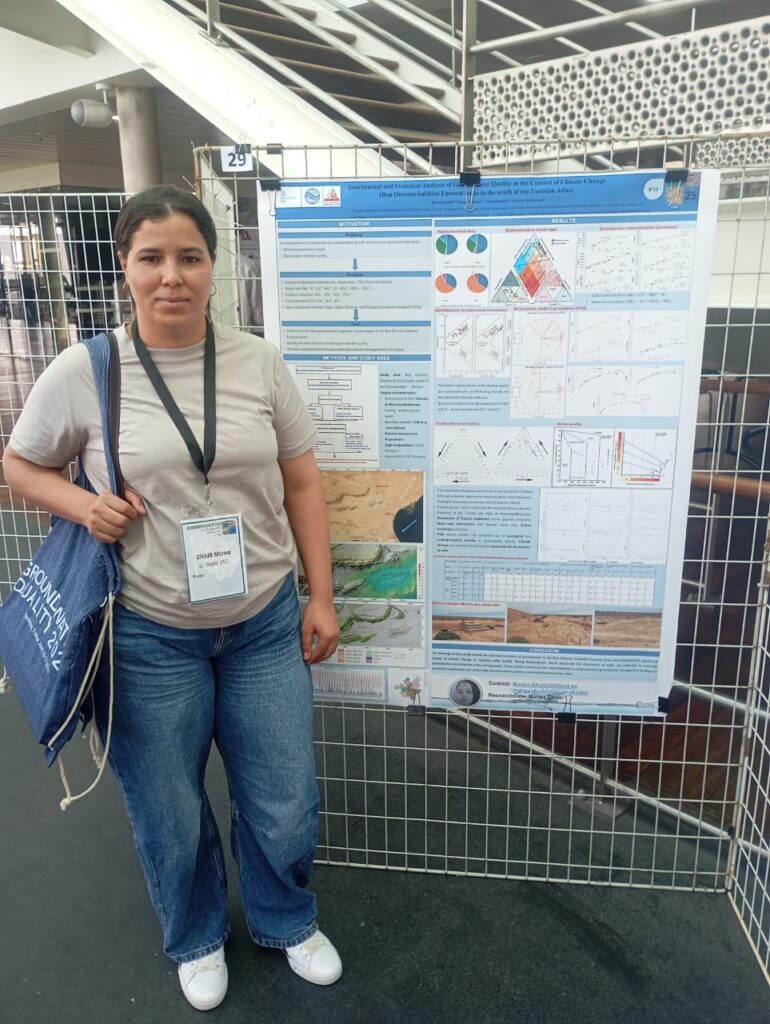
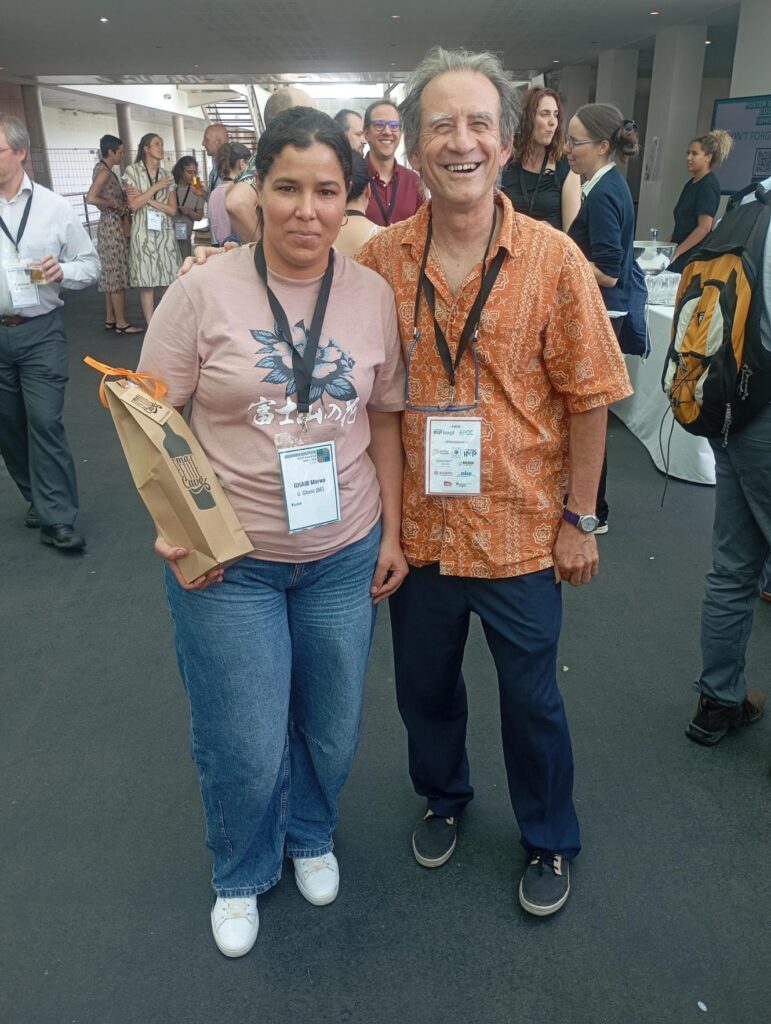
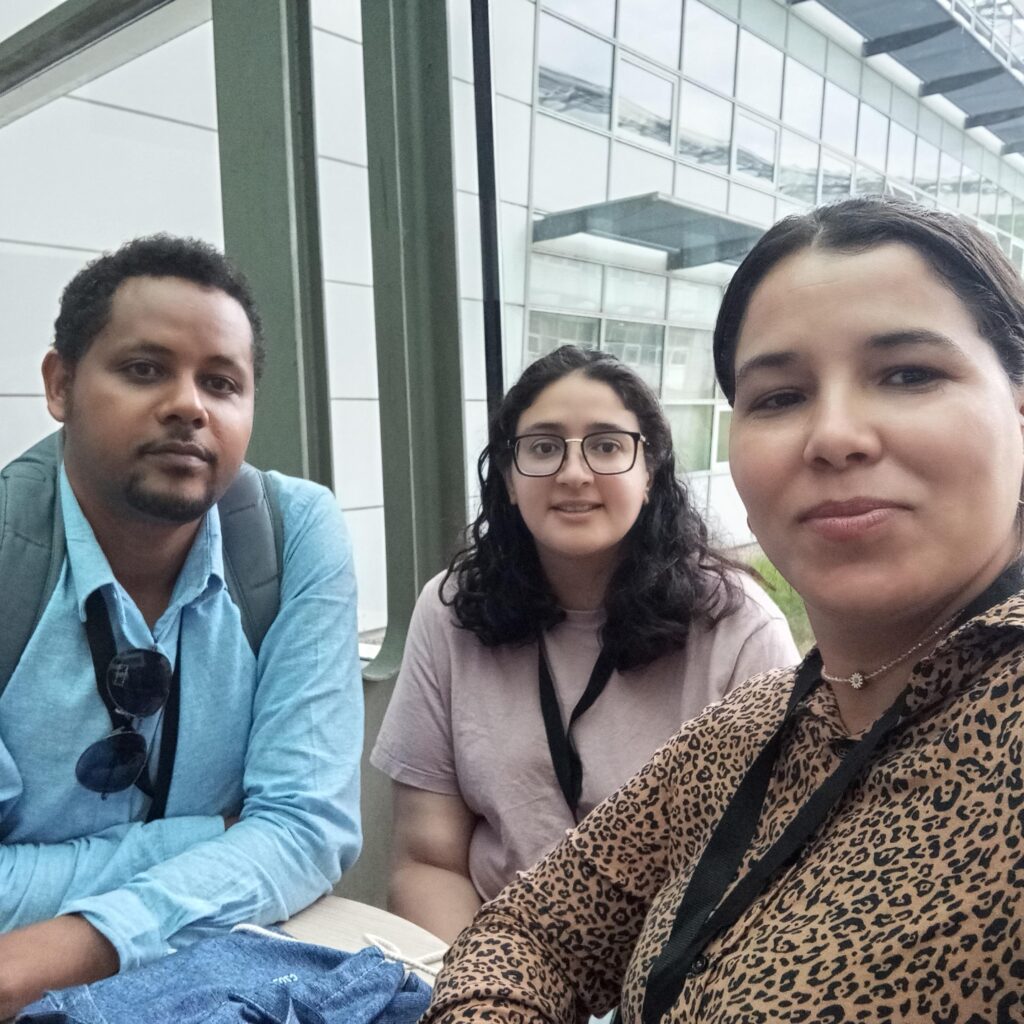
09-05-2025 – Kaleab Adhena Abera defends his PhD thesis
Read more
On Friday, May 9th, Kaleab sucessfully defended his PhD thesis “Inversigation of Groundwater resources using geophysical and hydrogeochemical methods. The case of Mekelle City and surroundings, Tigray, North Ethiopia”. Supervised by prof. Kristine Walraevens.
Congratusations dr. Kaleab!
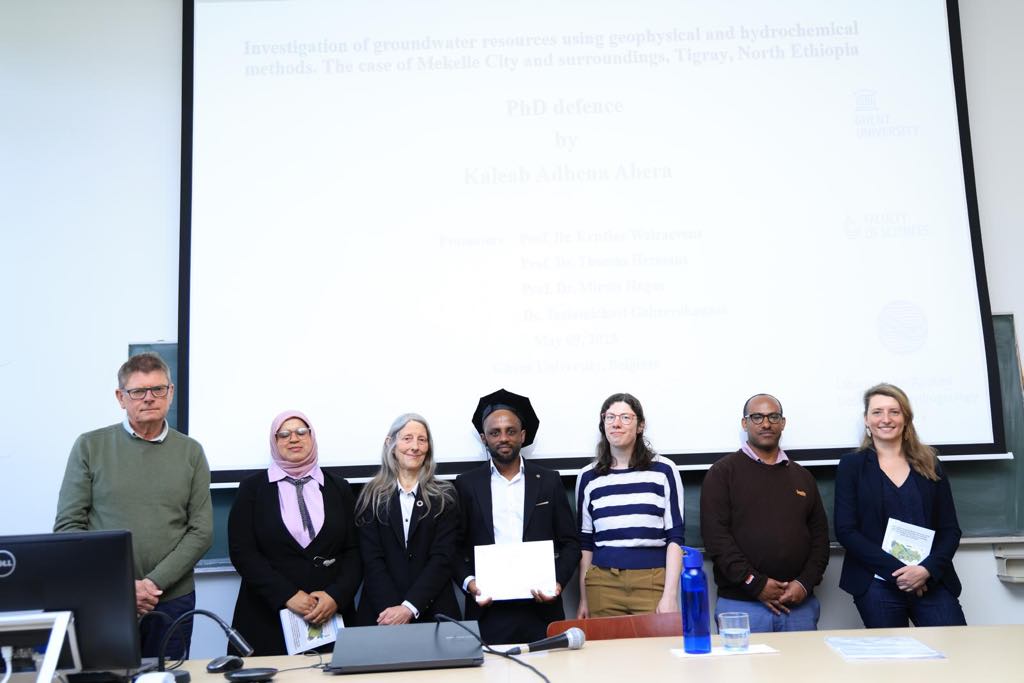
28-02-2025 – Wagari Mosisa Kitessa defends his PhD thesis
Read more
On Friday 28 February 2025, Wagari Mosisa Kitessa successfully defended his PhD thesis titled “Hydrogeological Analysis of a Volcanic Aquifer System in the Jimma Area, Ethiopia.
Congratulations dr. Wagari!
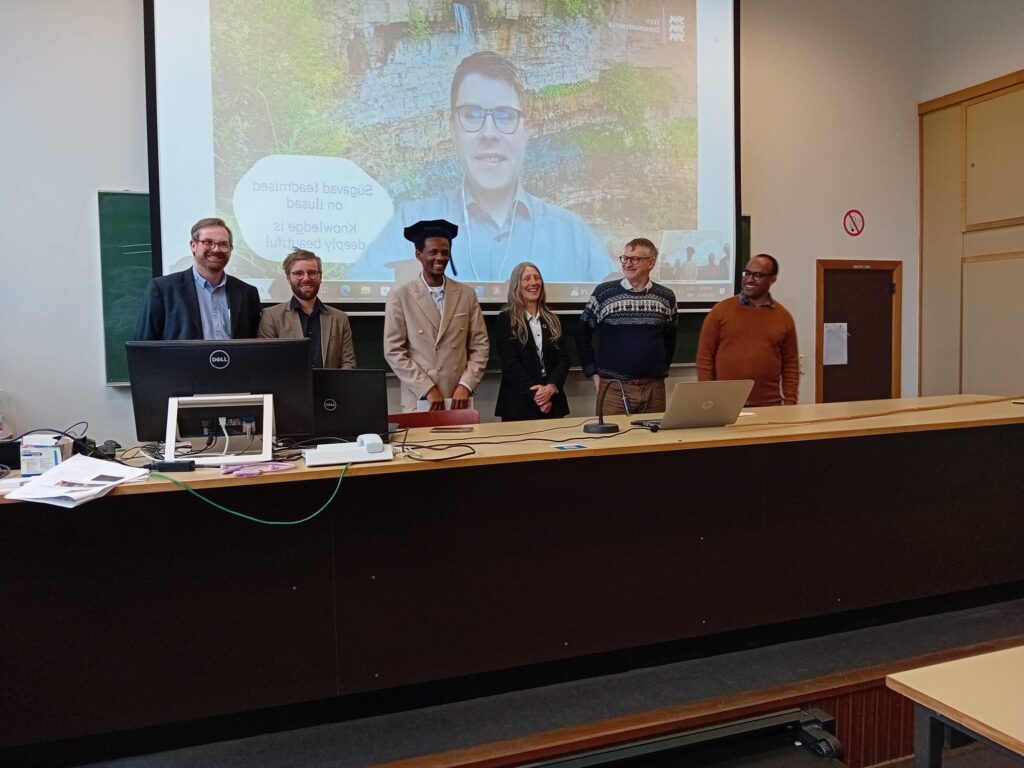
08-09-2024 – World Groundwater Congress, IAH Davos
Read More
The International Association of Hydrogeologists (IAH) Congress was held in Davos, Switzerland from September 8-13, and our research unit was well represented. Our team’s most recent research outputs were presented as posters or oral presentations. These included:
1 Groundwater Resource Investigation Using Integrated Hydro-physical and Hydro-chemical Methods: The Case of Mekelle City, Northern Ethiopia by Kaleab Adhena Abera.
2 Spatial and Temporal Distribution of Groundwater Recharge in the Volcanic Aquifer of Gilgel Gibe Catchment, Ethiopia by Fayera Gudu Tufa. Following the presentation, Fayera was awarded the BCH grant!
3 Groundwater Hydrochemical Characterization: A Case of the Jimma Area, Oromiya, Ethiopia by Wagari Mosisa Kitessa.
4 Groundwater Recharge Estimation Using Chloride Mass Balance (CMB) and Water Level Fluctuation (WTF) in the Tropical Climate of Volcanic Rock, by Adisu Befekadu Kebede.
The event was incredibly fruitful, with interactive discussions covering a wide range of topics. We had the opportunity to exchange experiences and knowledge with scholars from around the world. This was a rewarding experience, and we encountered several related works that will provide valuable insights for our ongoing research.
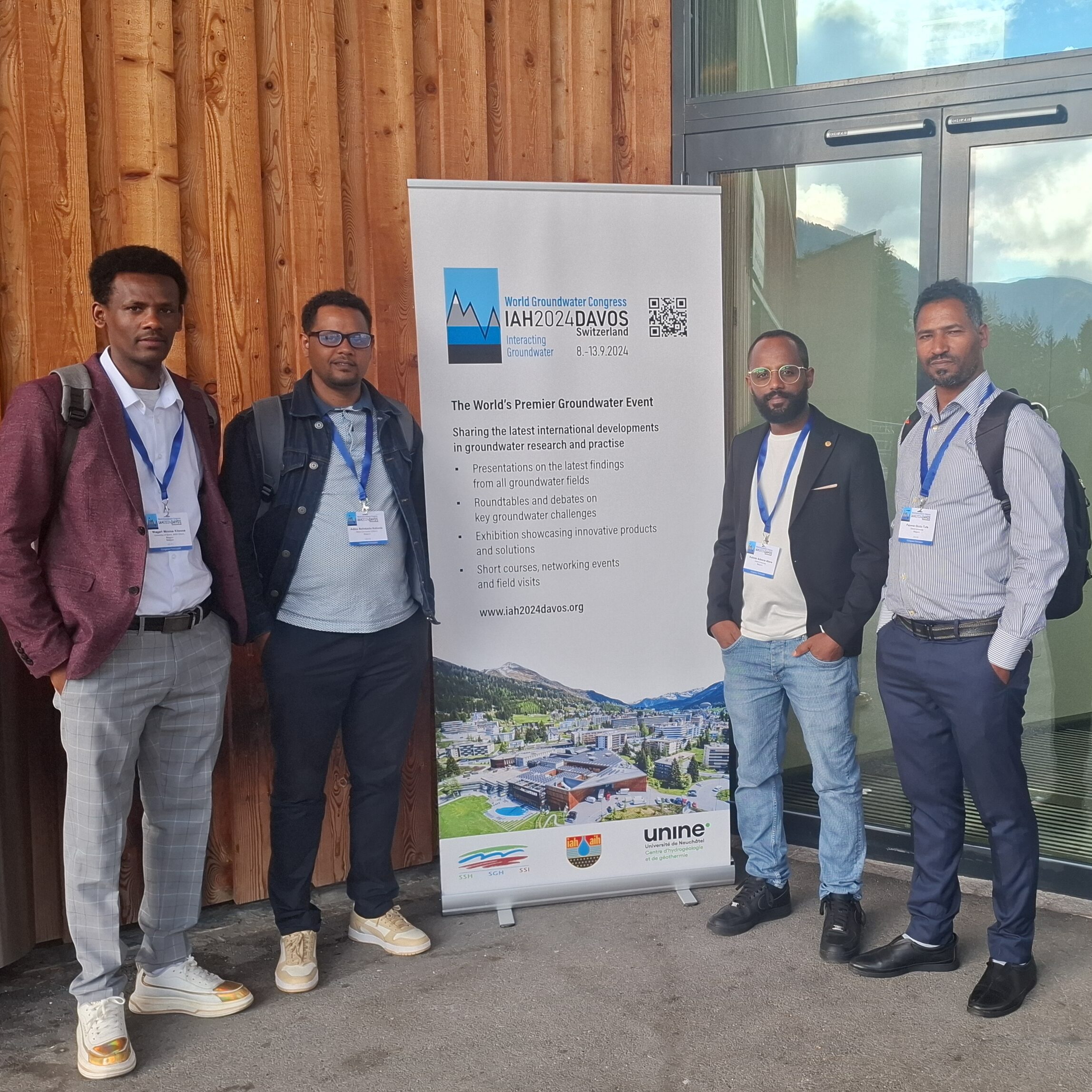
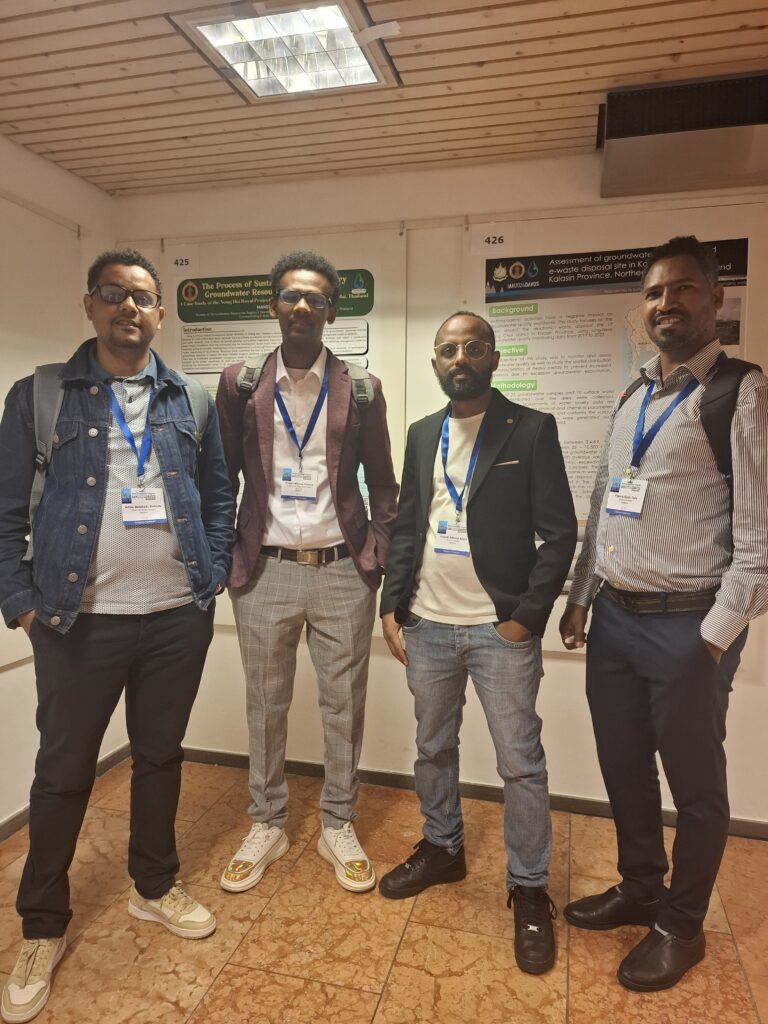
11-06-2024 – Summer school in Corsica
Read more
The 2024 Cargese summer school on “Flow and Transport in porous and fractured media: Linking life supporting functions of the subsurface across disciplines” was held from June 11 to June 21 2024 at the Cargese Institute in Corsica. Hamdi Omar and Thomas Hermans were present to present, teach and learn about this topic. Looking back at the pictures it was one of the greatest settings possible for a summer school.
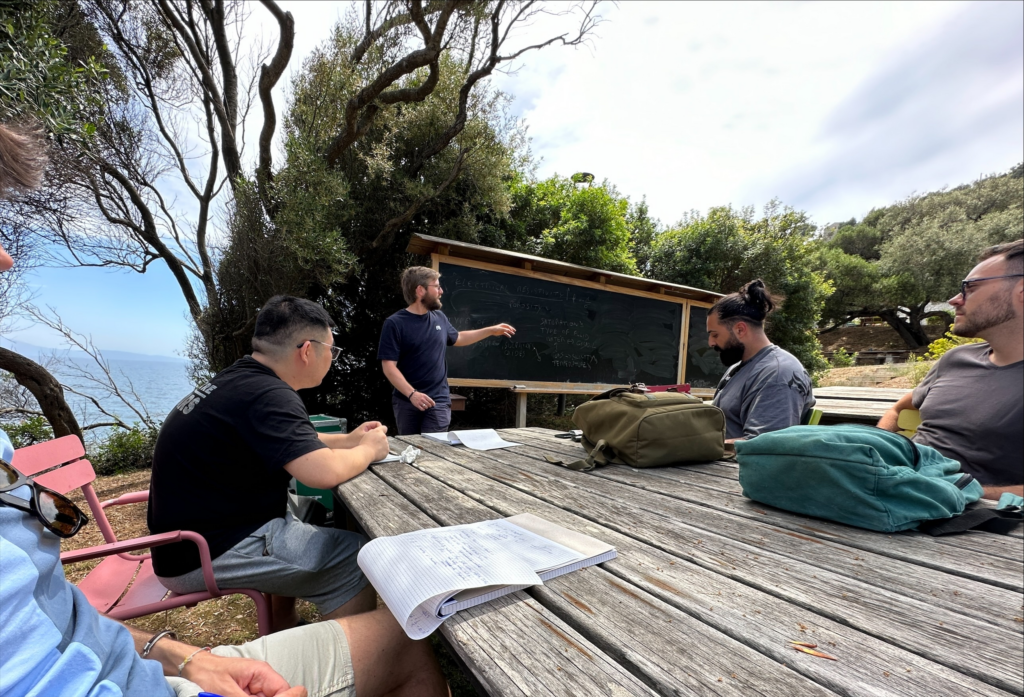

7-06-2024 – IAH annual study day
Read more
On the 7th of June, the Belgian part of the International Association of Hydrogeologists had their annual study day. Many professionals and academic researchers gathered at Ghent University to learn (and teach) about PFAS. The day ended with a field demonstration of flux measurements.
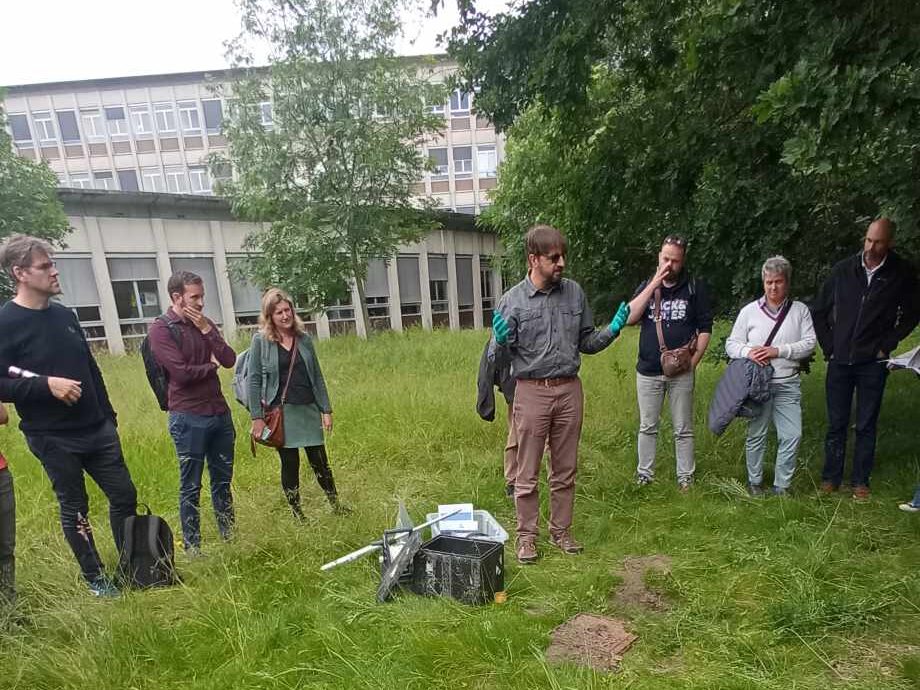
31-05-2024 – Marieke Paepen defends her PhD thesis
Read more
On May 31, Marieke Paepen successfully defended her PhD thesis “Fresh Submarine Groundwater Discharge in the Belgian Coastal Area”. Congratulations!
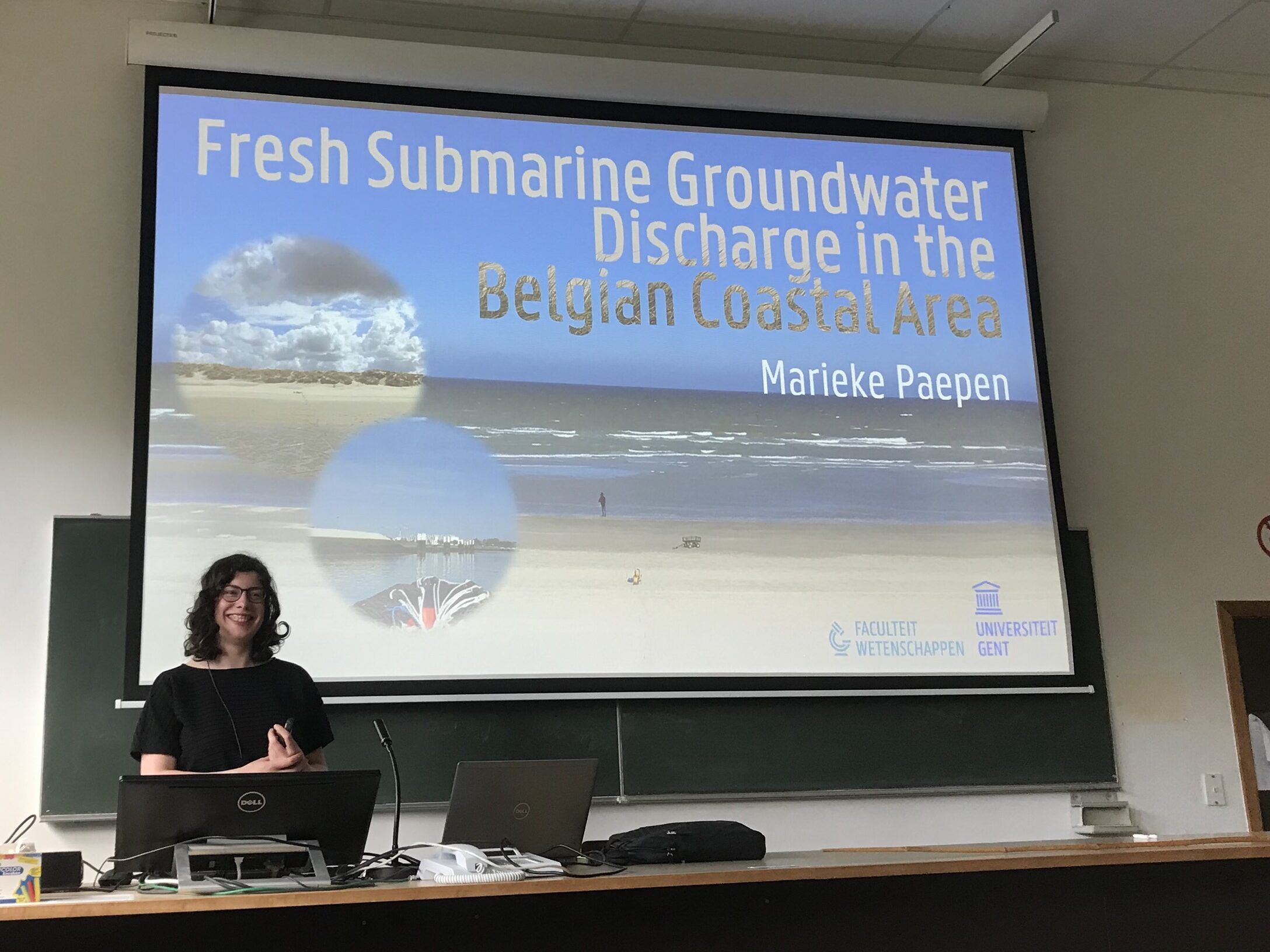
28-05-2024 – 7th international IP workshop
Read more
At the end of May the 3-day IP workshop was held in Lund (Sweden). Lore and Hamdi were present to discuss their work in the form of a poster with other experts in the field. Roundtable discussions were also held to encourage everyone to participate in the discussions. Also Flore Rembert, who will join our research unit from October, attended the workshop.


25-04-2024 – Meet the PhD Jury – Carlos Duque – University of Granada
Read more

On the occasion of the PhD defense of Marieke Paepen a ‘meet the PhD jury’ activity with Carlos Duque from the University of Granada will be organized. The seminar will start by a public lecture titled ‘Heat as a tracer in the study of groundwater-surface water interaction’, followed by an open discussion. After the seminar, interested PhD students will get the opportunity to meet in person with Carlos Duque to discuss their own research. Interested students can register in advance (email to Thomas.hermans@ugent.be) and we will set a planning for 1-to-1 discussion.
During the last few decades, the study of groundwater and surface water interaction has gained prominence in hydrological research. The exchange of water between aquifers and surface water bodies triggers chemical reactions and impacts biological activity, expanding this topic to a multidisciplinary level. Despite the increased interest, several persistent challenges hinder research on these processes: the heterogeneity of the interaction between groundwater and surface water, the difficulty of upscaling measurements, the movement of water exchange areas depending on groundwater and surface water levels, and the difficulties in detecting flow that occurs underwater. Often, this requires multiple measurements to characterize natural systems, which also means increased research expenses. In this context, the use of temperature offers a quick and cost-effective alternative for increasing the number of measurements that can be collected. The application of heat as a tracer has undergone significant evolution in measurement collection systems, modeling options, and real-case scenario applications. However, there are still challenges to solve, as heat is not a perfect tracer and certain parameters in assessing heat transport remain rarely quantified. In this talk, I will provide a brief overview of the evolution in methods and applications of using heat as a tracer for studying groundwater-surface water interaction, drawing from my own experiences across various natural settings and the associated challenges.
14-04-2024 – European Geosciences Union (EGU24)
Read more
The European Geosciences Union general assembly was held in Vienna and our research unit was well represented. Wouter Deleersnyder, Lore Vanhooren, Le Zhang, Hamdi Omar, Adissu Befekadu Kebede, Thomas Hermans, Khaoula Charrek, and Luka Tas presented their most recent research output in the form of posters or oral presentations. This led to fruitful discussions and new connections.
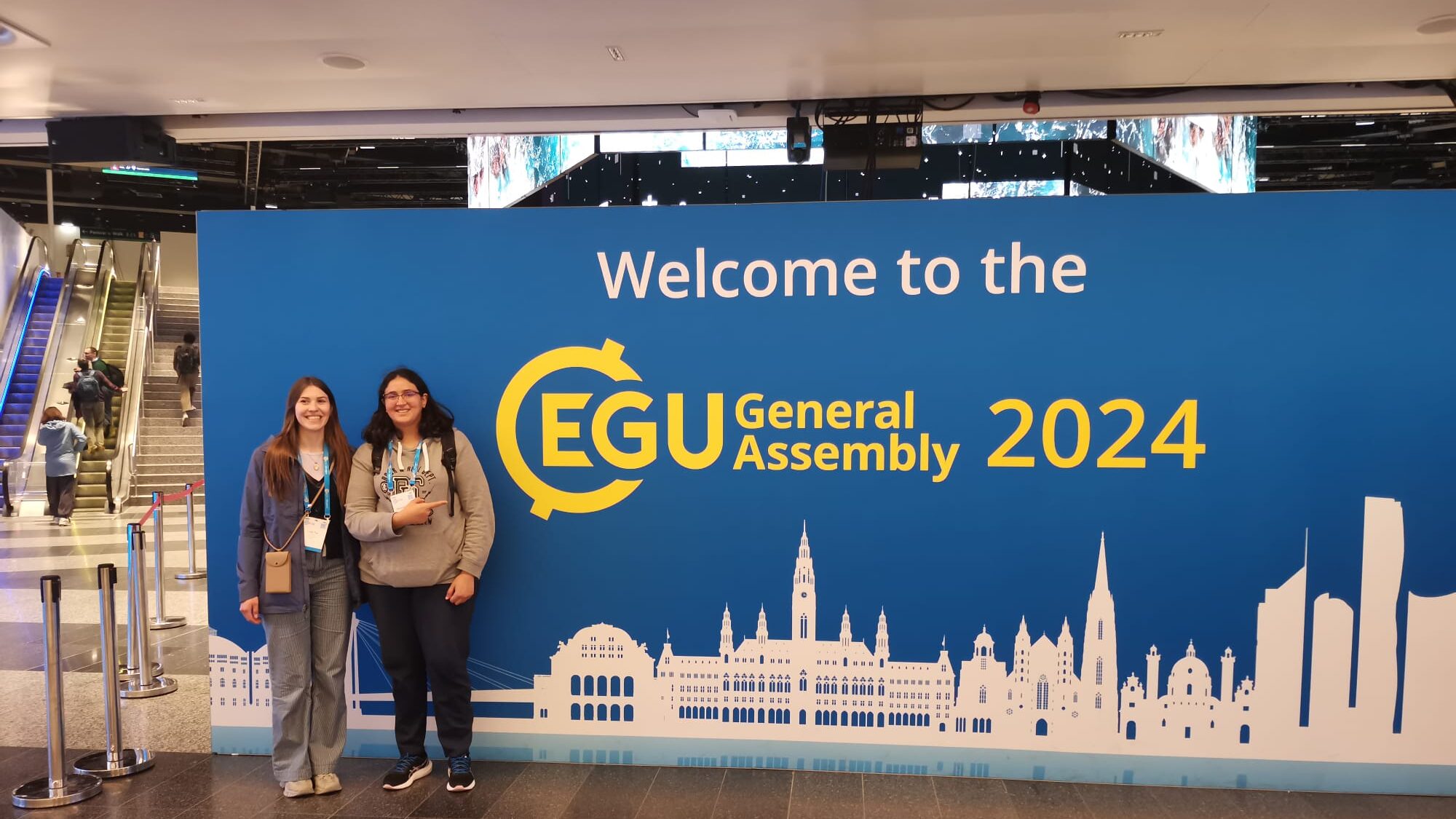
3-04-2024 – EGPD
Read more
In the beginning of April Luka Tas and Le Zhang attended the European Geothermal PhD Days in Delft. This workshop had a nice mix of keynote speakers, pitches, posters sessions, field trips and networking events. Luka Tas also won the best poster presentation award.
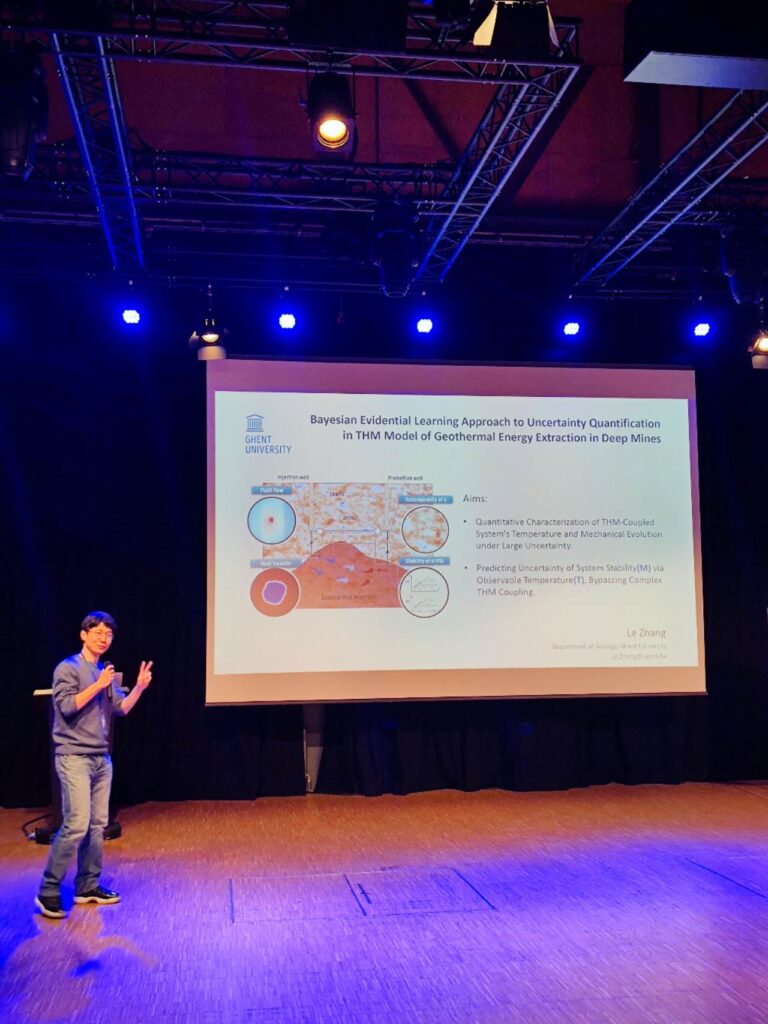
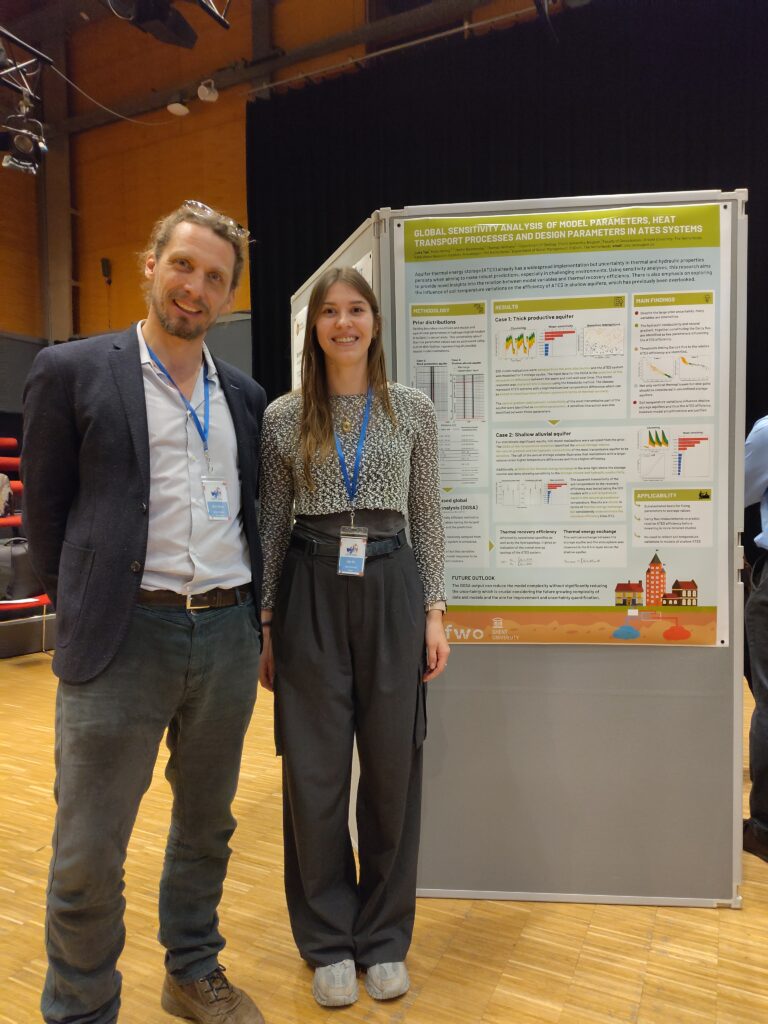
29-03-2024 – Fieldwork in Iceland
Read more
A team from Ghent University and ULB is back on the field in Iceland, for the second part of Lore Vanhooren’s PhD. In the first part, some repairs were done on the measuring equipment at the Reykjanes geothermal field, which has been monitored for 1.5 years (!) with Electrical Resistivity Tomography (ERT) and Fiber Bragg Grating (FBG). The team is currently on site at the Strokkur Geyser to conduct ERT and seismic measurements, with the aim of imaging the geyser’s eruption cycle. Due to the busy tourism, they are forced to work at night, which has already produced beautiful images!
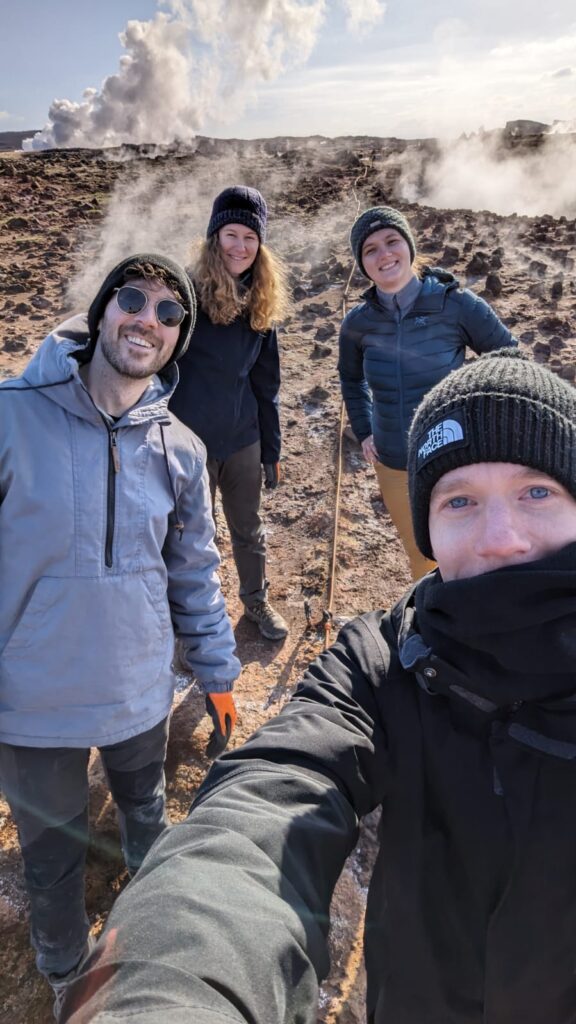
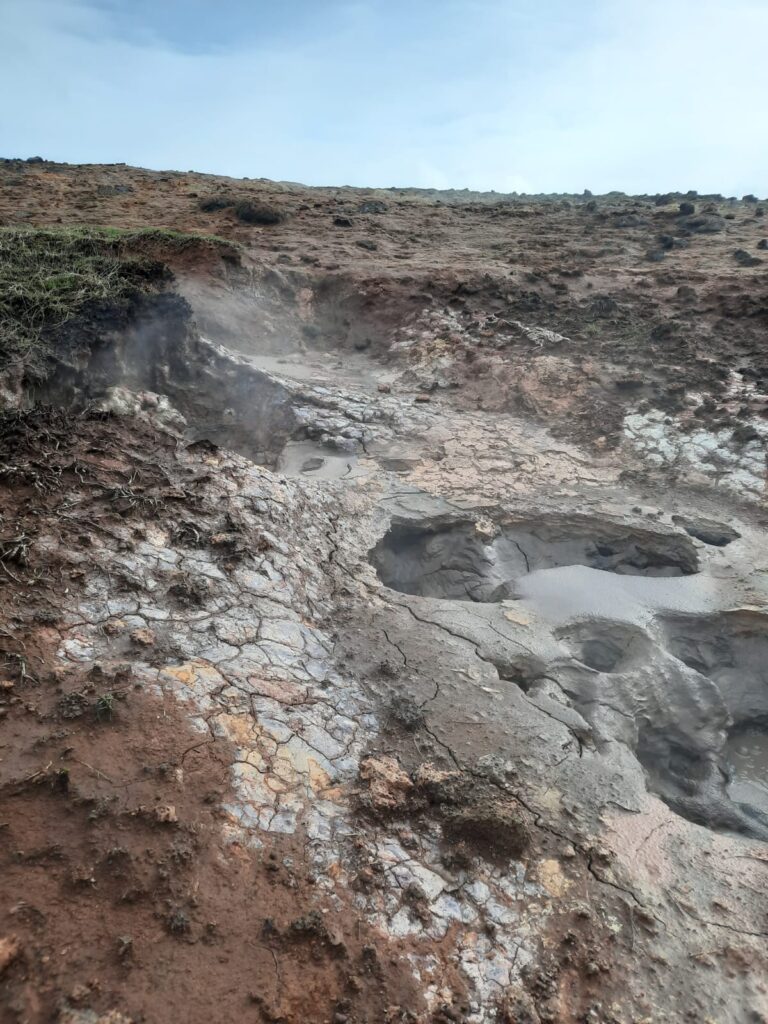
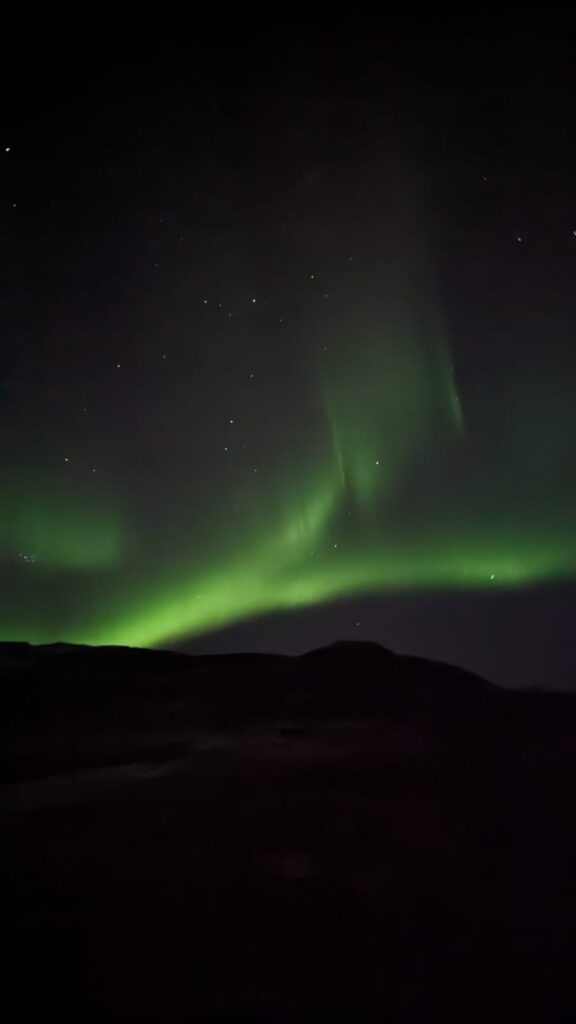
27-03-2024 – Geology in the Picture special lecture – Prof. Jef Caers – Stanford University
Read more
The 6th edition of the lecture series “Geology in the Picture” took place in the Aula of Ghent University. It was our pleasure to welcome Prof. Jef Caers (Stanford University, USA). His talk was not only about how artificial intelligence can accelerate mineral exploration but also about the crucial role of human intelligence (and geologists!) in the process, sustainability, social acceptance of mining activities and geopolitics.
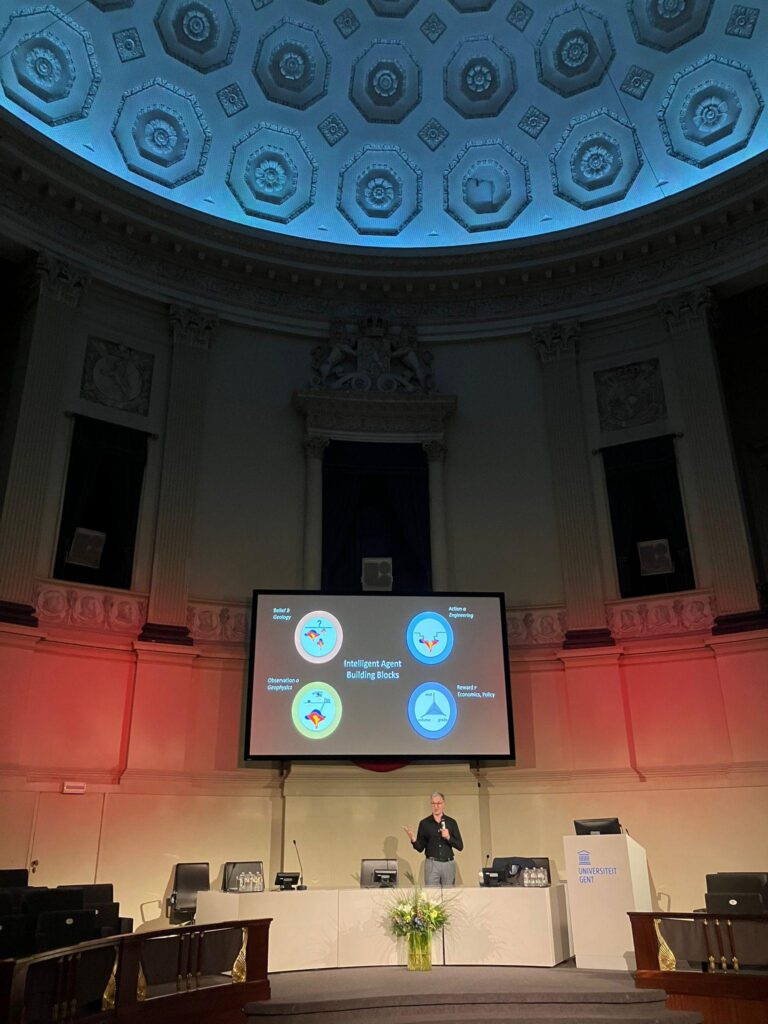
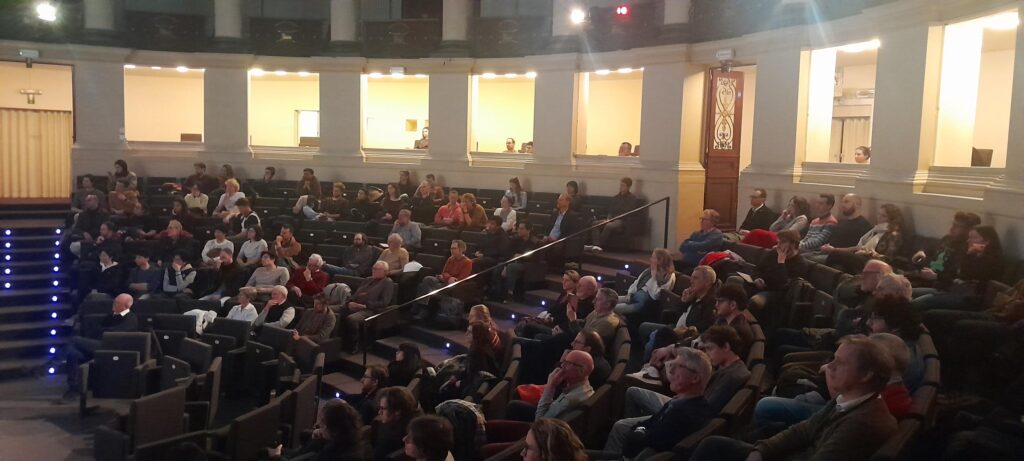
04-03-2024 – Sustainable cooperation Ghent University-Ethiopia receives a visit from Minister Caroline Gennez
Read more
The Minister of Development Cooperation came to Ghent University to talk to 8 Ethiopian doctoral students from the NASCERE program. The NASCERE program (Network for Advancement in Sustainable Capacity for Education and Research in Ethiopia) grew out of a 10-year bilateral collaboration between Jimma University in Ethiopia and Ghent University, funded by VLIR-UOS. Amongst the 8 students was Fayera Gudu Tufa who presented his research and contributions in the Gilgel Gibe catchment (southwestern Ethiopia) to study the groundwater-surface water interaction.


20-12-2023 – Christmas market
Read more
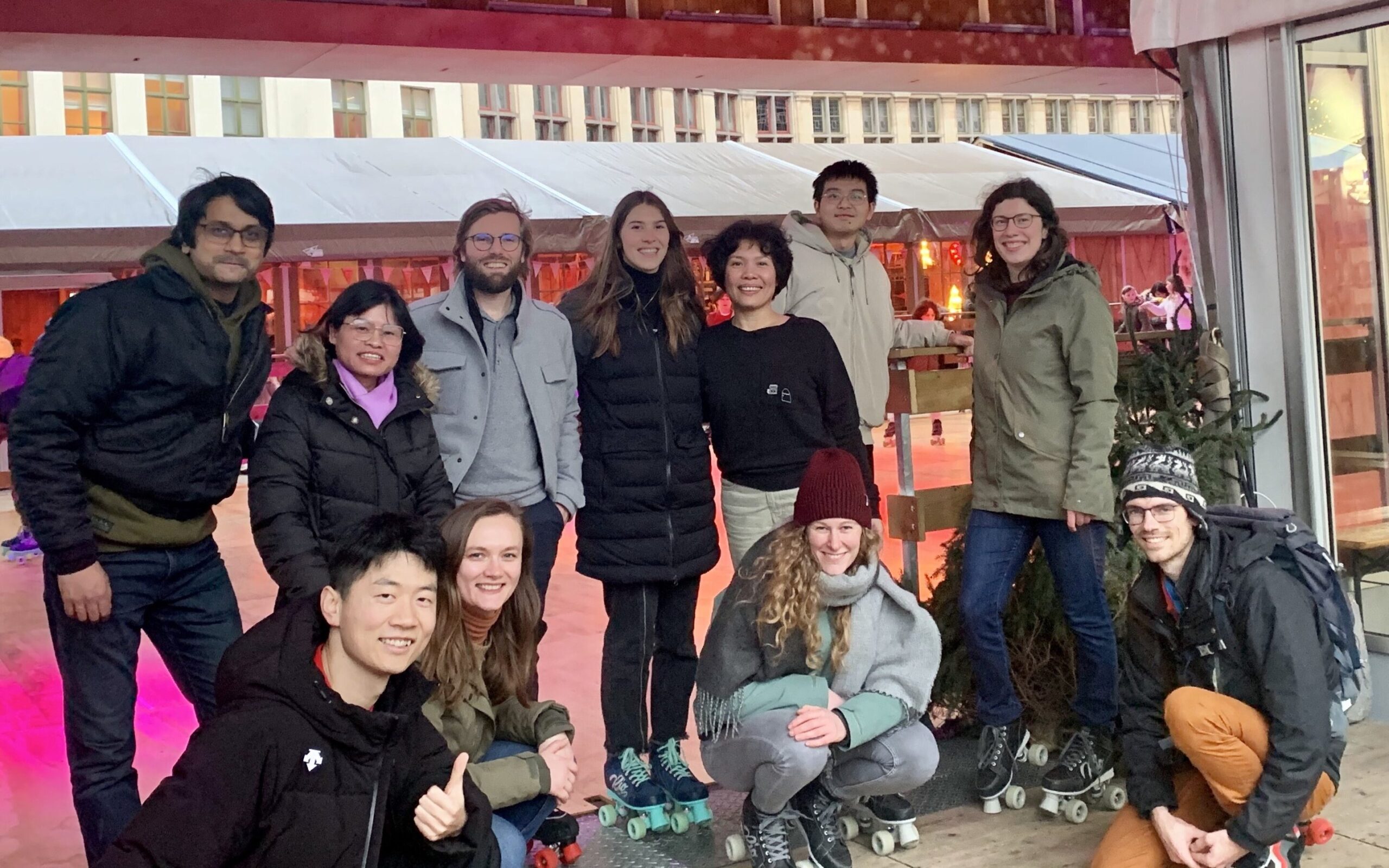
To finish the year strong and with joy, Prof. Dr. Ir. Thomas Hermans and his team enjoyed a festive day at the Christmas market in Ghent. We all wish you a prosperous year ahead with lots of exciting discoveries!
1-12-2023 – SWIM conference
Read more
On December 1st, Linh Pham Dieu, Diep Cong-Thi and Marieke Paepen attended the first Saltwater intrusion Symposium hosted at PWN (The Netherlands). Together with Dutch, German, and Italian colleagues they enjoyed a day full of interesting presentations and discussions on modeling, geophysics, and solutions to prevent salinization. All three also got the opportunity to present the latest advancements of their work.

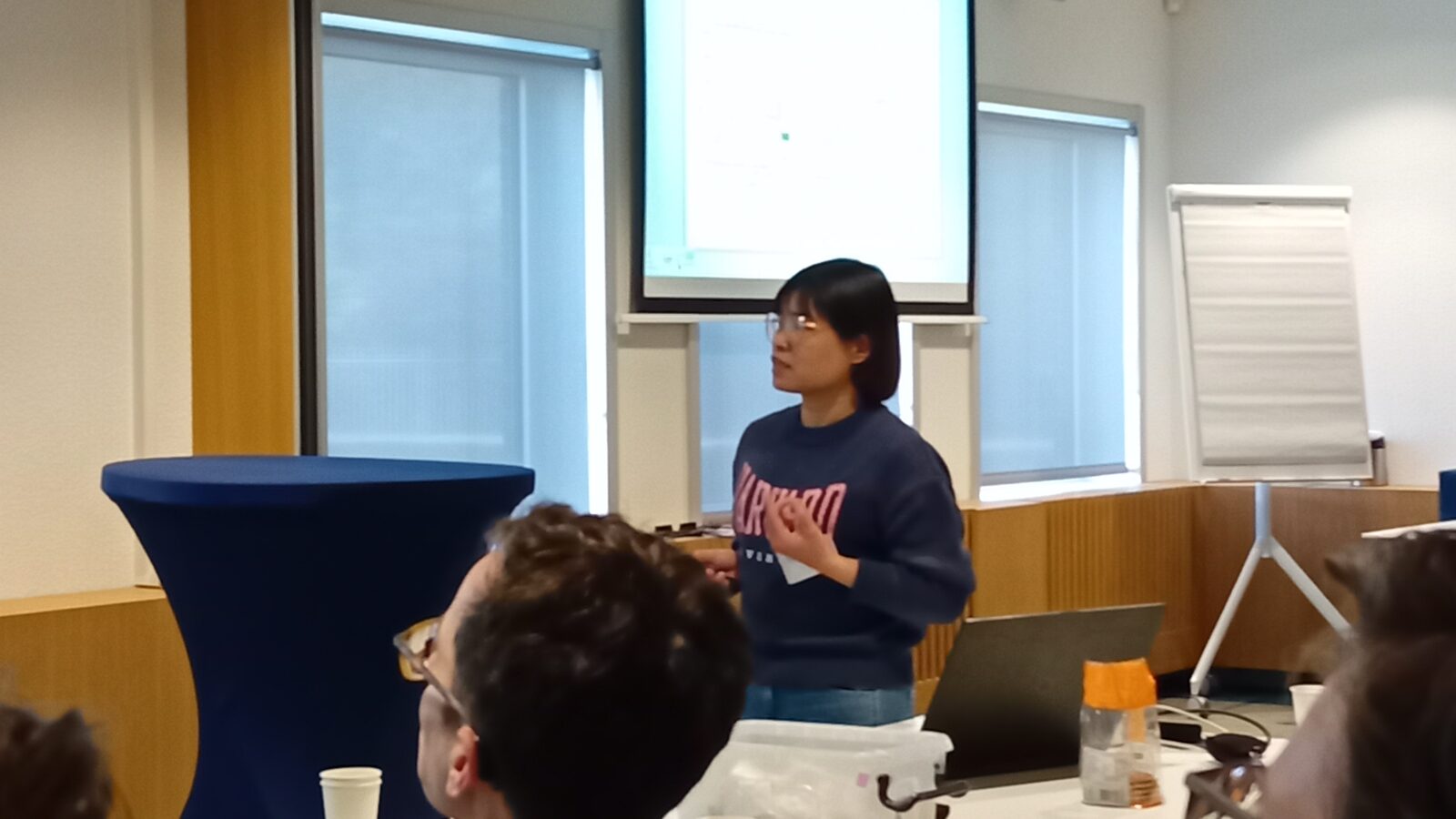
27-11-2023 – living lab approved on Ardoyen campus
Read more
More than ever, innovation and ambition are key when planning new projects. This influence is also clear at Ghent University. In the context of the climate plan, funding can be requested to set up a living lab. This is a collaboration between researchers, students and policy staff to contribute to the sustainable development of the campus. A project was recently approved to carry out a feasibility study for an aquifer thermal energy storage system (ATES) on the Ardoyen campus. ATES is a green alternative to provide both heating and cooling to buildings. However, on campus there is a poorly permeable aquifer, which means there is uncertainty regarding the feasibility. However, if the outcome of the study is positive, ATES will be able to make a significant contribution to the future green energy mix on the Ardoyen campus.
9-10-2023 – Wouter Deleersnyder defends his PhD thesis
Read more
On October 9, Wouter Deleersnyder successfully defended his PhD thesis “Improving Airborne Time-Domain Electromagntic Imaging with Applications to Groundwater Salinity Mapping”. Congratulations!
Wouter will continue his research on airborne EM data, geophysical inversion, and uncertainty analysis in the coming year as a postdoctoral researcher.
